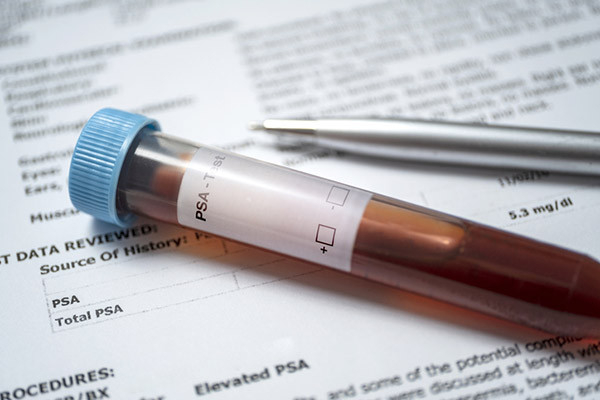
The transgender population is steadily increasing. Last year, investigators reported that 1.3% of people between the ages of 18 and 24 in the United States identify as transgender, compared to 0.55% of the country’s older adults. This trend has implications for public health, and one issue in particular concerns the risk of prostate cancer in transgender women.
Because removing the prostate can lead to urinary incontinence and other complications, doctors leave the gland in place when initiating hormonal treatments to induce female sex characteristics in transitioning people. This process, which is called feminizing or gender-affirming hormonal therapy (GAHT), relies on medications and surgery to block testosterone, a male sex hormone. Prostate cancer is fueled by testosterone, and therefore GAHT lowers overall risks for the disease. But transgender women can still develop prostate cancer in ways that remain poorly understood, according to the authors of a new paper.
“More individuals are openly identifying as transgender, particularly as advances are made in reducing the discrimination and marginalization that this group has faced,” says Dr. Farnoosh Nik-Ahd, a urologist at the University of California, San Francisco, and the paper’s first author. “Thus, it’s important to understand their health outcomes and how best to care for this population.”
Dr. Nik-Ahd and her colleagues wanted better insights into prostate cancer incidence and screening rates among transgender women, so they performed a comprehensive review of the literature that generated some notable findings. One is that that the prevalence of GAHT in the transgender population is still unknown. Some studies put the figure at roughly one in every 12,000 to 13,000 people who identify as transgender. But this is likely an underestimate, the authors claim, and it’s not broken out by sex.
Questions over GAHT
Similarly, little is known about the impact of GAHT on the likelihood of developing prostate cancer, the team reported. Prostate cancer rates do appear to be lower among transgender women than they are among cisgender men (men whose gender identify matches their sex at birth). For instance, one study found just a single case of prostate cancer among 2,306 transgender women receiving routine health care at a clinic in Amsterdam, Holland, between 1975 and 2006. Another study, also from Holland, detected six cases of prostate cancer among 2,281 transgender women over 17 years, which again is less than the comparable rate among cisgender men.
But the interpretation of these rates is limited by the fact that transgender women often experience barriers to care. Nearly a third of them live in poverty, and many avoid the health system for fear of mistreatment. Some scientists suspect that estrogen given during GAHT may somehow contribute to prostate cancer development when given over long durations. However, more confirmatory evidence is needed. Worryingly, one study found that survival among transgender women with prostate cancer is worse than it is in cisgender men with the disease, yet that research lacked data on GAHT use.
Interpreting PSA values for specific populations
Dr. Nik-Ahd’s team was especially concerned about the lack of guideline recommendations for prostate-specific antigen (PSA) screening in the transgender population. None of the available guidelines worldwide mention transgender women, and the PSA cutoff of 4 nanograms per milliliter (ng/mL) of blood — which raises suspicions for prostate cancer — is specific to cisgender men. PSA levels ordinarily plummet in people taking GAHT, so the limit for what’s considered normal in transgender women should be capped at 1.0 ng/mL, the researchers propose. In the absence of more specific guidance, they also recommend that people meeting age criteria for PSA screening get tested before starting on GAHT, in order to obtain a baseline value.
Many doctors are already familiar with other common drugs that alter PSA values — in this case with screening implications for cisgender men, points out Dr. Heidi Rayala, a urologist affiliated with Beth Israel Deaconess Medical Center in Boston, and a member of the Harvard Medical School Annual Report on Prostate Diseases editorial board. For instance, PSA values drop by half in men taking finasteride or dutasteride for hair loss (or to shrink an enlarged prostate). “Doctors take extra care when interpreting PSA in cisgender men who take these drugs,” she says. “The same care needs to be taken in interpreting PSA values in transgender women. And there needs to be broader education on this topic for both primary care doctors as well as the transgender community.
Dr. Nik-Ahd agrees. “Future research should aim to understand baseline PSA values for those on gender-affirming hormones, and to understand how to navigate some of the psychosocial barriers around PSA screening so as to not stigmatize transgender patients,” she says.
About the Author

Charlie Schmidt, Editor, Harvard Medical School Annual Report on Prostate Diseases
Charlie Schmidt is an award-winning freelance science writer based in Portland, Maine. In addition to writing for Harvard Health Publishing, Charlie has written for Science magazine, the Journal of the National Cancer Institute, Environmental Health Perspectives, … See Full Bio View all posts by Charlie Schmidt
About the Reviewer

Marc B. Garnick, MD, Editor in Chief, Harvard Medical School Annual Report on Prostate Diseases; Editorial Advisory Board Member, Harvard Health Publishing
Dr. Marc B. Garnick is an internationally renowned expert in medical oncology and urologic cancer. A clinical professor of medicine at Harvard Medical School, he also maintains an active clinical practice at Beth Israel Deaconess Medical … See Full Bio View all posts by Marc B. Garnick, MD
